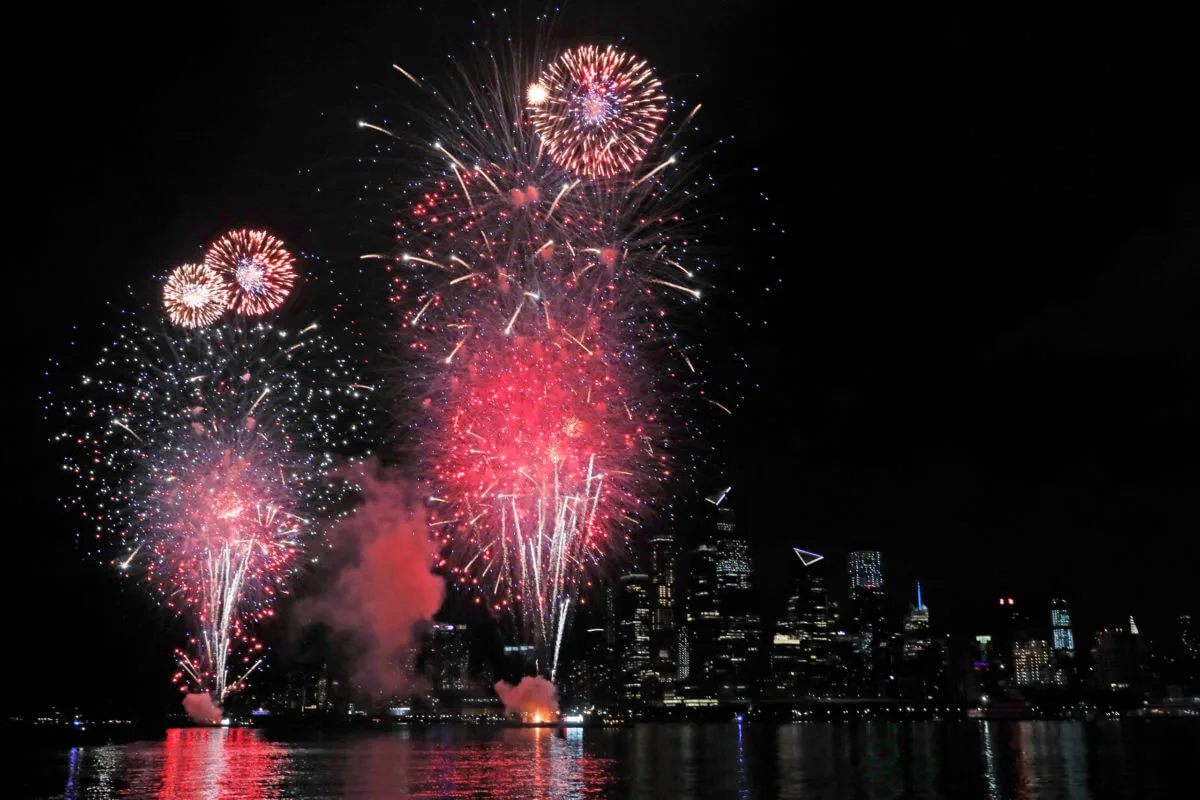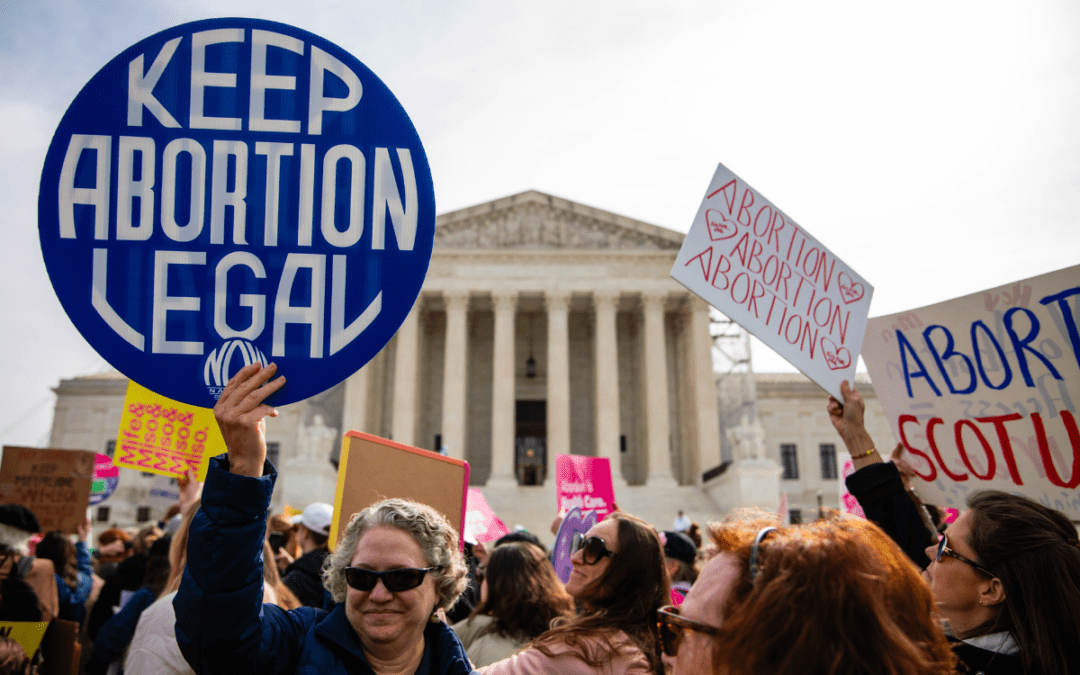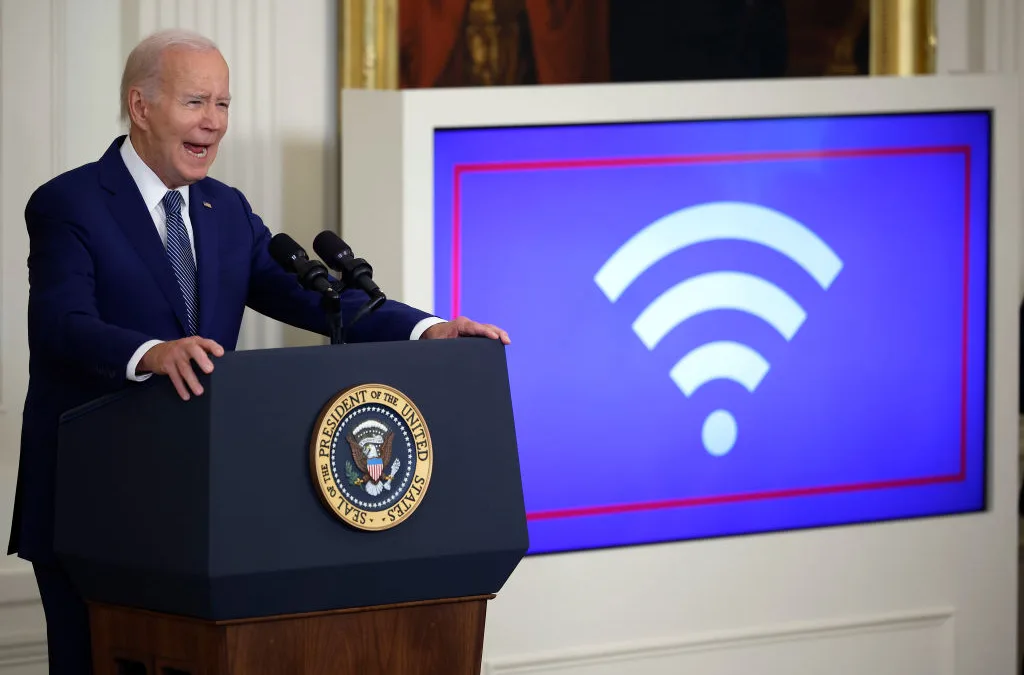
A surprise display of fireworks sponsored by Macy's explode over the Hudson Yards area of Manhattan as seen from a pier in Hoboken, N.J., Tuesday, June 30, 2020. The fireworks were not announced until an hour or so before to avoid attracting large crowds. (AP Photo/Kathy Willens)
Medical experts have advised Americans to spend time outdoors, practice social distancing, wash and sanitize their hands, avoid large crowds, and limit contact with people outside of their household.
The United States will celebrate Independence Day this weekend under the increasingly grim shadow of a pandemic that is spiraling out of control. Public health officials are warning that Fourth of July celebrations could make things even worse.
“I think it is a critical moment for the public health message to be given out and heard,” Dr. Robert Kim-Farley, a medical epidemiologist and infectious diseases expert at the UCLA Fielding School of Public Health, told the Los Angeles Times. “Traditionally, the Fourth of July has been such a time for large gatherings and beach going. If those same practices occurred, we could be back with even a further spike upon our spike that we’re having now.”
California is one of a handful of states that have reinstituted restrictions amid surging case counts—many of which have been tied to celebrations of the nation’s most recent holiday, Memorial Day, as well as state reopenings, which also occurred around that time. Bars in at least 19 counties have been ordered closed, and Los Angeles County, Long Beach, and Laguna have ordered their beaches closed over the weekend. Arizona, Texas, and Florida have also shuttered bars after they were linked to new outbreaks, while cities in Pennsylvania have canceled several fireworks displays amid rising case counts.
But states like South Dakota appear to be shrugging off concerns about public events. Republican Gov. Kristi Noem said on Monday that people attending the state’s Independence Day event at Mount Rushmore—at which President Trump will be present—will not be required to wear masks or social distance.
“We will have a large event on July 3. We told those folks that have concerns that they can stay home, but those who want to come and join us, we’ll be giving out free face masks, if they choose to wear one. But we will not be social distancing,” Noem told Fox News’ Laura Ingraham.
RELATED: A List of All the Ways the Trump Administration Failed Its COVID-19 Response
Trump’s attendance at an event that refuses to mandate masks or social distancing flies in the face of advice given by the government’s top infectious-disease expert, Dr. Anthony Fauci. Fauci discouraged people from attending events
During a Wednesday IGTV interview with Jessica Yellin, Fauci was asked about his thoughts regarding the July 3 event. “You should avoid—whenever possible—gathering in crowds where people cannot maintain physical distance,” he replied. “Avoid crowds, wear a mask, keep physical distance. It doesn’t matter what the reason for the congregation, whether it’s a celebration here, the demonstration there. It doesn’t make any difference—wear a mask.”
Trump is also holding a July 4th celebration on the National Mall in Washington, D.C., on Saturday, featuring one of the largest fireworks displays ever. As many as 300,000 face masks will be given away, but attendees will not be required to wear them, despite concerns from the city’s mayor.
As states, counties, and cities go their own way and leaders contradict one another on the severity of the crisis, ordinary Americans are increasingly confused about what’s safe and what’s not, and how they can celebrate the Fourth of July and minimize COVID exposure. To address this issue, COURIER put together a guide for how to approach the holiday.
Precautions to Take in Any Situation
Wearing a face mask in any setting outside of your own home is perhaps the best precaution you can take. Studies have shown that wearing a mask can dramatically reduce transmission of COVID-19. In late May, two hair stylists in Missouri had close contact with 140 clients while sick with COVID-19. Everyone wore a mask and not a single client tested positive.
“The absolute best thing is to wear a mask and wash your hands as soon as you get home and don’t touch your face in between,” said Dr. Dara Kass, associate professor of emergency medicine at the Columbia University Medical Center.
RELATED: AZ Hospitals Are So Overwhelmed They’re Now Ranking Patients on Life Expectancy
Medical experts also advised Americans to practice social distancing, wash and sanitize their hands, avoid large crowds, and ideally, limit contact with people outside of their household.
“I would maintain good hand hygiene, wear a mask when in public locations and maintain social distance,” said Dr. Krutika Kuppalli, an infectious diseases physician and Vice Chair of the IDSA Global Health Committee.
What’s Safe
While much of the science surrounding COVID-19 remains uncertain, a consensus has emerged that being outdoors around people not in your household is much safer than being indoors around them. A paper out of Hong Kong found that of 7,324 documented cases in China, only one outbreak occurred outdoors. Another study from Japan concluded that the risk of infection in a closed, indoor environment is nearly 19 times higher than in open-air environments.
Spending time at parks, beaches, or hiking paths are among the safest things you can do, assuming you take proper precautions. But public outdoor spaces are not full-proof.
“The big risk here comes from public spaces, like restrooms and other gathering areas, where you may be in close contact with others,” said Dr. Robbie Goldstein, a physician and infectious disease specialist at Massachusetts General Hospital.
These places also become far less safe if you’re around large crowds, according to Dr. Pritesh Gandhi, associate chief medical officer for a community health clinic in East Austin, Texas. “Partying on a crowded beach offers quite a different level of risk than taking a walk with your partner on an isolated beach.”
Keeping groups small is also critical. “I would limit gatherings to the least number of individuals as possible. Each individual you have increases the risk you may be exposed to coronavirus,” said Dr. Kuppalli.
What’s Not Safe
Bars, restaurants, movie theaters, bowling alleys, or other indoor entertainment venues are considered to be some of the least safe settings, according to medical experts. They’re all public, indoor spaces that can get crowded and where social distancing is difficult, thus increasing the risk of contracting the virus.
“Being indoors for a prolonged period of time around people you don’t know increases risk of transmission,” said Dr. Gandhi.
Outdoor bars and restaurants are a little safer because “you are not sharing the same re-circulating air for a prolonged period,” according to Eleanor J. Murray, assistant professor of epidemiology at Boston University School of Public Health. But, she noted, they’re not without risk. “There are still plenty of shared objects and surfaces (including plates, cutlery, and tables, but also restrooms and credit card machines).”
The Bottom Line
- Wear masks and social distance
- Outdoors is better than indoors
- Avoid crowds
Why Taking Precautions This Weekend Matters So Much
Americans typically commemorate the Fourth of July in grand fashion, attending parades and fireworks displays. But this year, the holiday could worsen the nation’s already catastrophic coronavirus outbreak.
The U.S. represents 4% of the world’s population, but accounts for 25% of all cases and deaths from COVID-19, recording nearly 2.7 million cases and more than 128,000 deaths as of Thursday morning. The nation’s outbreak is only getting worse too, as the U.S. reached another bleak milestone on Wednesday, recording more than 50,000 new cases in a single day.
On Tuesday, Fauci predicted the country could soon see 100,000 new coronavirus cases daily. “I’m very concerned, I’m not satisfied with what’s going on, because we’re going in the wrong direction,” he said. “I would not be surprised if we go up to 100,000 a day if this does not turn around.”
Fauci said he could not project an estimated death toll, but said it would be “very disturbing.”
If the Fourth of July draws large crowds and sees Americans descend on bars and restaurants, those numbers could get even worse.
Politics

How Project 2025 aims to ban abortion in Pennsylvania
Former president Donald Trump said abortion was a state’s rights issue recently, but conservative organizations, under the banner “Project 2025,”...

736,000 PA households could lose crucial help on their internet bills
Time is running out for the Affordable Connectivity Program, which provides low-cost high speed internet access for over 736,000 Pennsylvania...

What to know about Trump’s legal issues
Over the past year, former president Donald Trump has become the center of not one, not two, not three, but four criminal investigations, at both...
Local News

Conjoined twins from Berks County die at age 62
Conjoined twins Lori and George Schappell, who pursued separate careers, interests and relationships during lives that defied medical expectations,...

Railroad agrees to $600 million settlement for fiery Ohio derailment, residents fear it’s not enough
Norfolk Southern has agreed to pay $600 million in a class-action lawsuit settlement for a fiery train derailment in February 2023 in eastern Ohio,...






